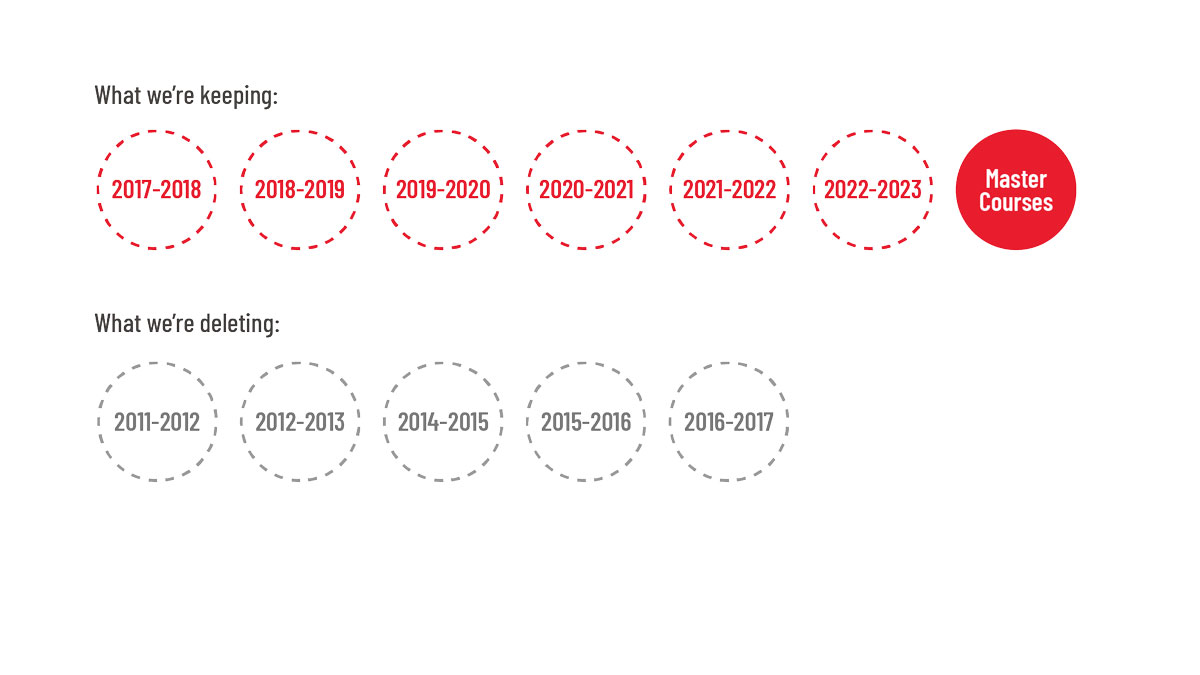Thank you for your interest in our process for online course development. We work directly with Deans, Department Chairs, faculty, and other strategic partners across campus to prioritize SUU’s online growth. After courses and programs are selected for online development, CTI enters into an agreement with academic departments and assigned faculty to develop high-quality courses.
Please contact Matt McKenzie if you have any questions.
Course Development & Payment
To receive payment for a New Online course, a redesigned course, or an updated course a Subject Matter Expert (SME), who is typically an SUU faculty member, and an Instructional Designer (ID) must work collaboratively to develop the necessary course components. The SME and ID will agree to the following partnership parameters and conditions as listed in the CTI Agreement which is submitted to CTI at the beginning of the development process.
Course Development Partnership Parameters
Working collaboratively, the SME and ID will:
- Agree to a timeline to ensure completion of the course prior to its debut;
- Course builds are typically completed within 16 weeks of the kickoff meeting
- Determine the division of labor at the beginning of development (i.e. building in Canvas, creating new activities, providing subject matter content, etc.);
- Stay in regular contact, defined at the onset of the project;
- Complete a Course Map and Module Organizers utilizing a template provided by CTI;
- Apply Design Tools from Cidi Lab in all course elements and pages;
- Provide proctoring, tutoring, and other vendor options to students, if necessary;
- Ensure that the course complies with relevant accessibility and copyright laws;
- Ensure that the course aligns with CTI’s quality assurance criteria.
If the course development does not meet the above criteria, the course may be paused, canceled, or reassigned based on a conversation with the Program Director, Department Chair, Dean, and/or Assistant Provost.
Payment will be sent to the SME once the course passes the CTI Course Review Rubric, which is based on the SUU Syllabus Policy 6.36 and QM Standards. Note: If you go through our development process you will receive a copy of the rubric at the beginning of the process.
Types of Eligible Courses for Online Course Development Funding
All courses, no matter their level of development, must be approved by a Department Chair or Dean in order to receive development funding from the CTI
A new, fully online, asynchronous course that has never been developed at SUU within the past three years. Exceptions can be made based on significant changes (80 - 100% of the content is changing) in content. For example, significant changes to specific content such as tax laws discussed in the course are changed at the government level resulting in significant changes to course content.
Courses which have been designed or redesigned within the past three years will need justification for redesign, as well as approval from the Program Director, Department Chair or Dean, and the Assistant Provost for Faculty Affairs or designated representative prior to work being started on the course. Additionally, the course cannot require an on-campus presence or synchronous component to the course.
An online course previously developed but in need of significant changes with significant changes (approximately 40 - 80% of the course needs to be changed). Courses which have been designed or redesigned within the past three years will need justification for redesign, as well as approval from the Program Director, Department Chair or Dean, and the Assistant Provost for Faculty Affairs or designated representative.
For Minor Updates, Major Updates, and Redesigns, the SME and ID will complete the Faculty Course Analysis and CTI Course Analysis, then collaborate to identify the category of the project. Additionally, payment amounts will vary based on the number of credits the course is worth.
Please be aware that our process staggers course development. If a course is selected for course development the process may occur earlier than anticipated. By staggering the developments, it ensures courses are completed on time for their debut session and that CTI staff can provide the appropriate amount of attention to each development.




